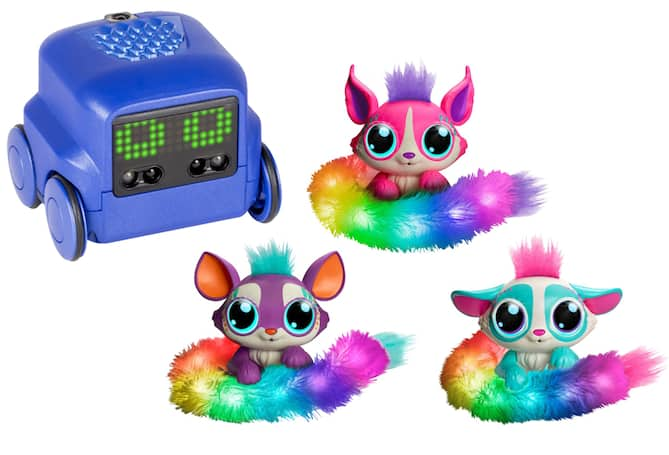Top 7 Reasons Why Parents Buy Educational Toys

carousel
Maybe you have noticed the exponential growth of the educational toy market over the last couple of decades and wondered what it’s all about. Are these toys really any better than the ones kids played with a couple of generations ago? Can kids even learn when all they are doing is playing?
For a long time, the traditional school structure separated playing from learning. Educators believed that playing was something you enjoyed in the schoolyard in your free time and learning was something you did by listening, taking notes, and memorizing dates, multiplication tables, and formulas.
However, scientific research in the field of education is changing a lot of our former approaches. As we discover more about how children learn best, we gain new tools to make learning approachable and even fun!
So, does this mean you need to include educational toys and games in your collection at home? Read through this list of why many parents buy educational toys and come to your own conclusion.
1. Play is how children learn
Children learn about the world around them through play. More and more, we are realizing the importance of hands-on learning. Education cannot focus solely (or even mainly) on listening and memorizing because some of the most effective learning is done by doing.
Play can help children learn about their emotions, explore their creativity and learn including problem-solving and social skills. If you want your child to succeed in school and life, make sure they have plenty of opportunities to play creatively in ways that both challenge and reward them.
2. Educational toys inspire problem-solving and introduce new interests
Many toys (like games and puzzles) involve problem-solving, and educational toys put that skill front and center. They’re designed to challenge your child in a way that also encourages and inspires solution-based thinking.
Sometimes, these educational toys focus on specific school subjects, such as math or spelling. But often, they utilize methods that enhance spatial awareness or social cooperation. These behavioral skills can complement the measurable ones your child is learning in school.
Additionally, educational tools can make concepts that seem abstract — like robotics, electricity or magnetism — into something your child can experiment with and understand. Many educational tools have the bonus feature of exposing your child to concepts, experiences and subjects that might prove to become long-term interests, like sculpture, archeology, biology and more.
3. Educational toys develop sensory motor skills
Educational toys for young children are not only good for the mind but also the body and the mind/body relationship. Building-based, sound-based and color-based toys for young children often focus on developing sensory motor skills like proprioception, which is the awareness of the position and movement of the body.
Body awareness is about correctly judging the location of each part of your body in space: Is your elbow going to bump into a button? Will your finger knock over a balanced block? Body awareness also helps you develop visual motor skills — understanding how what you are seeing will affect and be affected by your body.
These skills come in handy for doing almost everything in life: writing, playing sports, driving a car and more. Understandably, games and toys that encourage young children to develop this awareness early will set them on a rewarding path.
4. Toys can improve fine motor skills as well
Once a child has a good grasp of visual motor skills, body awareness and balance, they can take the next step: using toys that develop fine motor skills.
Any toys or games that involve building with small pieces, painting, coloring, drawing or crafting are toys that are increasing your child’s fine motor skills. You might later see these skills reflected in a child’s typing speed, handwriting legibility or playing a musical instrument.
5. Toys can make school subjects more interesting
6. Play can improve concentration
Playing with toys can be a great way to improve concentration. When kids play, they’re not only having fun but also exercising their concentration. This is especially important for children who have learning disability.
When kids concentrate on a toy or game, they can focus their attention and block out distractions. Toys like puzzles, building blocks and games that require concentration and determination to win can help your child develop this skill and improve it over time.
7. Playing with others develops social and emotional intelligence
Through play, we learn how best to interact and solve conflicts with others. While solo play is essential for developmental growth, group play is equally so. Playing with others can excite a sense of collaboration and foster healthy competition.
There are many educational toys for both solo and group play. It’s good to have a collection of both available for your child so they can learn how to entertain themselves independently and interact well with others.
You may have heard the saying, “All work and no play makes Jack a dull boy.” Well, scientific research has certainly backed up that statement with its findings on the importance of play. Therefore, if you want to provide your children with the best possible learning environment, remember to give them ample opportunities for fun with educational toys and games.